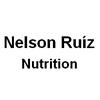Effects of dietary supplementation of organic chromium (picolinate) on physical and biochemical characteristics of semen and carcass traits of male turkeys
Published: February 20, 2019
Source : Avishek Biswas, Sharma Divya, A.B. Mandal, S. Majumdar, Ram Singh. / Avian Nutrition and Feed Technology Division, Central Avian Research Institute, Izatnagar 243 122, India.
Summary
Abstract
This experiment investigated the effect of dietary chromium (Cr as picolinate) on physical and biochemical characteristics of semen and carcass traits of adult male turkey. Seventy-two (72) male turkeys (16 weeks old) were randomly distributed into four dietary treatment groups (4 × 3 × 6) for a period of 24 weeks. Three experimental diets were supplemented with 250, 500 and 750 g Cr/kg (T2, T3 and T4 respectively) in basal diet (T1 considered as control). Semen physical characteristics viz. sperm concentration, progressive motility, live and dead count of spermatozoa and fertility differed significantly (P < 0.05). Sperm concentration, progressive motility and fertility were higher and dead count was lower in T4 (750 g) group than control (T1) or other dietary treatments (T2 or T3) group. Semen biochemical parameters like creatinine, acid phosphatase (ACP) and alkaline phosphatase (ALP) concentration did not differ significantly among the dietary treatment groups, whereas, total protein, glucose, malondialdehyde (MAD) and cholesterol concentration differed significantly (P < 0.05) amongst the treatment groups. Protein and MAD were higher while glucose and cholesterol concentrations were lower in T3 and T4 group than control or T1 group. The shrinkage loss, eviscerated yield, relative weight(as percent of body weight) of breast, thigh and liver improved on supplementation of Cr leading to significantly higher in T4 group in comparison to control. From this study, it could be concluded that supplementation of chromium as chromium picolinate, at 750 g/kg level in diet was beneficial for improving physical characteristics of semen, carcass yield and breast yield of adult male turkeys. However, Cr levels of 500 or 750 g/kg in diet were beneficial for semen biochemical parameters of adult male turkeys.
Key words: Chromium picolinate, Semen, Physical parameter, Biochemical parameter, Turkey.
Abstract published in Animal Reproduction Science 151 (2014) 237–243. https://doi.org/10.1016/j.anireprosci.2014.10.007.
Related topics:
Authors:
Recommend
Comment
Share

26 de junio de 2019
I just would like to suggest that the authors carefully review the units for the treatments (T2, T3 and T4) as presented in the abstract. Something is not right.
Recommend
Reply

Would you like to discuss another topic? Create a new post to engage with experts in the community.

















